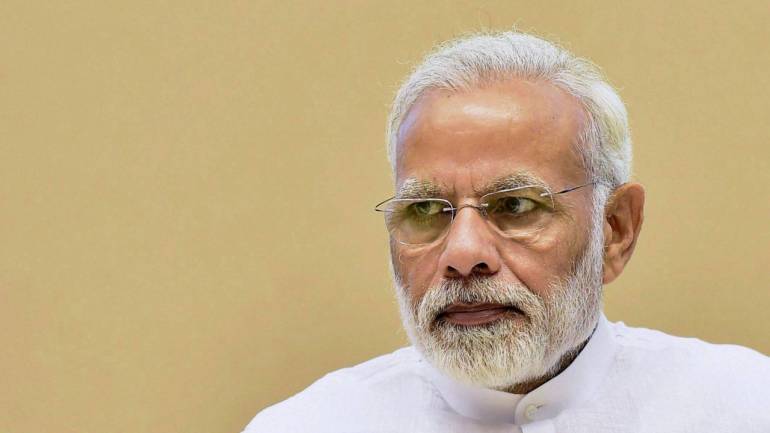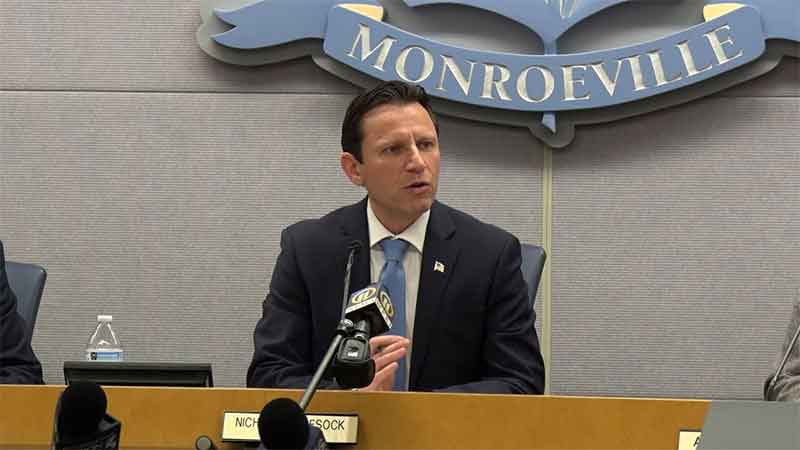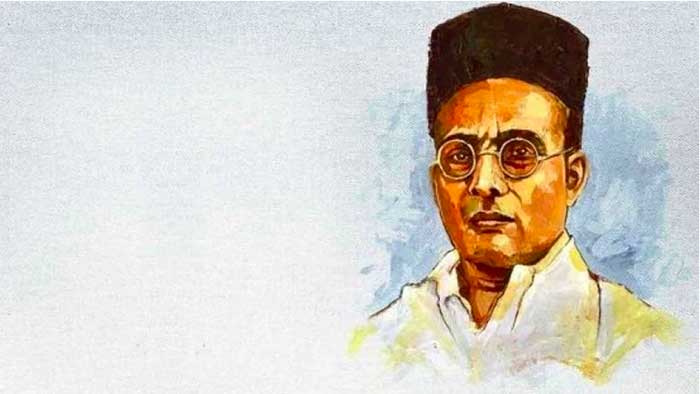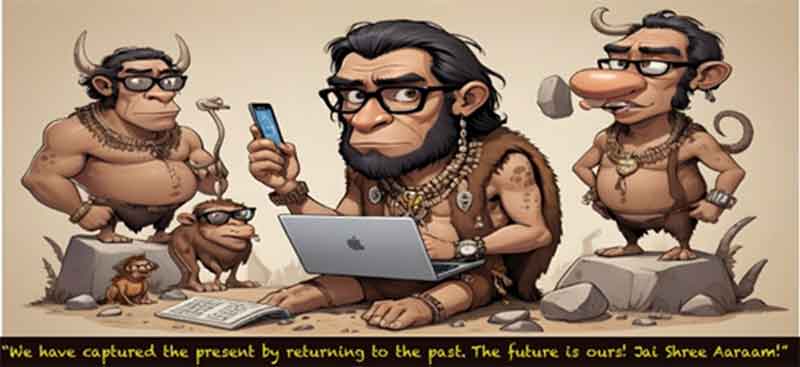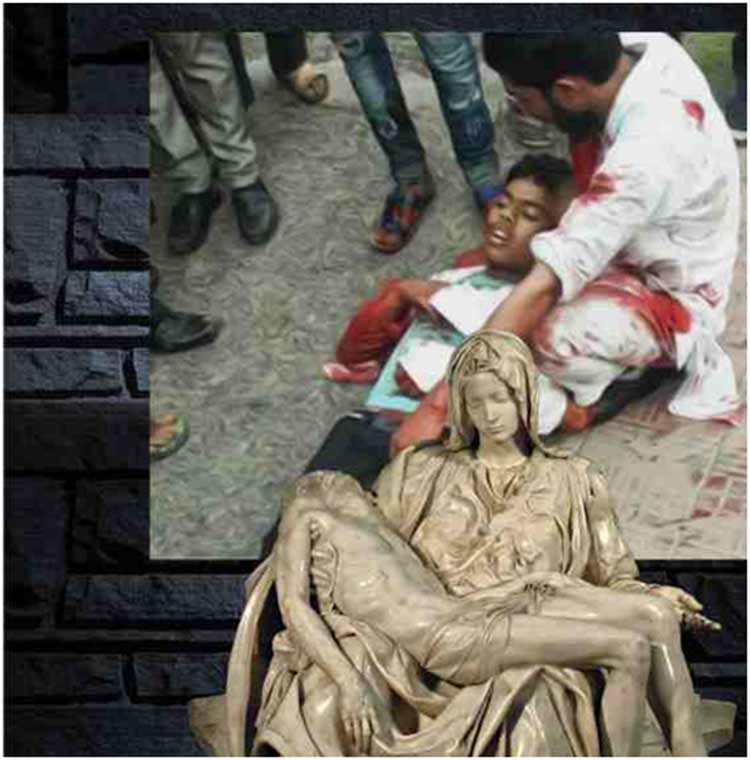
Hindutva ideologue Golwalker had outlined the place of the minorities in the country in his much talked about book, We, or Our Nationhood Defined (1939),
There are only two courses open to these foreign elements (Muslims and Christians), either to merge themselves into the national race and adopt its culture or live at its mercy so long as the national race may allow them to do so and quit the country at the sweet will of the national race. That is only a good view of minorities’ problem…[The] alien races in Hindustan must either adopt the Hindu culture and language, must learn to respect and hold in reverence Hindu religion, must entertain no idea but those of the glorification of the Hindu race and culture, i.e., of the Hindu nation and must lose their separate existence to merge in the Hindu race, or may stay in the country, wholly subordinated to the Hindu nation, claiming nothing, deserving no privileges, far less any preferential treatment—not even citizen’s rights (qtd. in Salam, Lynch Files p. 21).
In its self-styled way, the BJP says that it is a party that seeks to represent all of India but ironically and proudly affirms its loyalty to only one nation of Hindus. Simultaneously, it denigrates and vilifies other religious minorities living in India. It has both benefitted from such ideas in its politics by appealing to Hindu extremists and advocating for their many movements and demands that have given further credit and emphasis to ideologies of systematic hatred and exclusivity.[i]
Hindutva is not a word but a history, asserted Vinayak Damodar Savarkar. He is very clear that the term, hindutva, or Hinduness is not to be confused with Hinduism which is a sectarian term and that refers to the followers of Hindu religion. Hindutva, on the other hand, encompasses members of other Indic faiths like Sikhism, Buddhism and Jainism. It, however, excludes all other faiths irrespective of their presence in India for many centuries. Savarkar’s claim of defining a Hindu is essentially based on his claim of a sacred geography. Among his three proposed criteria that are necessary for claiming Hinduness, it is evident that punyabhoo takes precedence over pitrabhoo and jati. For instance, hypothetically, an American may become a Hindu though he has no allegiance to blood and fatherland. However, Muslims and Christians of India are excluded though they have inalienable allegiance to the said two criteria. These examples prove that the only criterion for fulfilling the Hinduness is punyabhoo. Savarkar’s thesis exhibits that only those marked by hindutva have the moral and political right to constitute the nation. His spatial strategy related to the idea of hindutva redefines the nation as a sacred space, a holy land. This theory acts to invest the Indian nation with a religious essence that is “un-analysable, un-questionable sacred value”, that outsiders can never experience or internalise, and that forever and completely defines its insiders. [ii] Lynching of Indian Dalits and Muslims in the name of cow or love-jihad is simply a reaffirmation of the claims put by Hindutva ideologues Savarkar and Golwalkar. India is a holy land where the Christian Dalits and Muslims have no rights whatsoever. Either they leave the punyabhoo or live at the mercy of the Hindus.
Acclaimed writer and activist Aakar Patel, however, argued that Savarkar’s book, Hindutva (1923) simply defined Indian as Hindu. And as Muslim and Christian could never refer to Hindu, India’s religious minorities could never be Indian. It was just Savarkar’s opinion only. “How was this exclusion to be effected in law when India became independent and Hindus took over the State? This Savarkar did not say because written in the early 1920s, the work does not anticipate the end dof the Raj and an independent India”. The definite instruction came in Deendayal Upadhyaya’s 1965 Pune speech. He asserted,
Our quarrel is not with Mohammed, nor with Mullas and Maulvis. Our quarrel is with the way Muslims behave, coupling political ambition with religious zeal. This is why the war is not religious but political…There is only one way to defeat Muslims bigotry, and it is politically defeat them. This is the real solution of the Muslim problem. So long as they are not politically defeated, the rot will continue to grow. Only such a defeat will make them have second thoughts and the process of Hindu-Muslim cooperation will begin (qtd. in Patel, p. 456).
The author claims that, “This was the task for Modi and we can say conclusively that in his terms, India’s Muslims have been politically defeated and excluded from power and from influence as fully as possible. But the question remains: so what are Hindus to do after they have put India’s Muslims in their place? These instructions Upadhyaya did not leave Modi (p. 456)”. The RSS does not have any idea either. And there is no text on Hindutva economics or on Hindutva foreign policy.[iii]
Pluralism and inclusiveness have defined the essence of India for ages. But these old principles are receding speedily. Violence colours the contours of India, from Gandhi’s assassination to the horrors of communal violence emerging from Babri Masjid demolition and Gujarat pogrom. Today, Indians are in danger. They withdraw into “a shell of religious isolation”. This makes a departure from the basic tenets of the idea of India. Hinduism teaches the acceptance of difference as a fundamental principle. Hindutva is not Hinduism. It is “a political doctrine, not religious one”. The state, if built with Hindutva ideology, will be a state with plural ugly heads, and which cannot be accepted by many thinking Hindus. Jai Shri Ram, that is being used like a war cry today will be heard in every corner. There will be no scope for greeting people with Jai Sia Ram, the sound of peace and equilibrium.[iv]
Through the unending series of lynching instances, beginning on 28 Sept. 2015 and continuing until the present, the Muslims, and to a lesser extent, the Christians and the Dalits, are being told they are here at the mercy of the majority community. They can claim no rights, privileges, or even equal footing. A dispassionate look at all the lynching incidents proves that none of them is a spontaneous action of unlettered albeit headstrong villagers whose religious sentiments have been hurt but a well-thought-out action with specific victims in mind. The cow is held as a sacred animal by a section of Hindus. However, in the cases of lynching, it becomes a political animal with which to browbeat and even murder minorities and the Dalits.
Abu Siddik teaches at Plassey College, West Bengal, India. He is a bilingual author and has been published in India and abroad. He has three critical books— Representation of the Marginalized in Indian Writings in English (Falakata College Cell, 2015), Misfit Parents in Faulkner’s Select Texts (Authorspress, 2015), Banglar Musolman (Sopan, 2018); two poetry books and a short story, published by Authorspress in 2020 —Rugged Terrain, Whispering Echoes, A Birdwatcher and Other Stories. Website: www.abusiddik.com
References
[i] Sajjad, Muhammad Waqas. “Examining the State of Muslim Minority under Modi’s BJP since 2014.” Strategic Studies, vol. 38, no. 4, 2018, pp. 19–36. JSTOR, https://www.jstor.org/stable/48544275. Accessed 17 July 2023.
[ii] Deshpande, Satish. Contemporary India: A Sociological View. New Text, 2016. Chapter Four, Kindle Edition.
[iii] Patel, Aakar. Price of the Modi Years. Penguin Books, 2021.
[iv] Tharoor, Shashi. “Foreword.” In Hey Ram to Jai Shri Ram: 20 Dates that changed the course of India, Anand Vardhan Singh. Anamika Publishers and Distributors, 2022. Kindle Edition. ,



